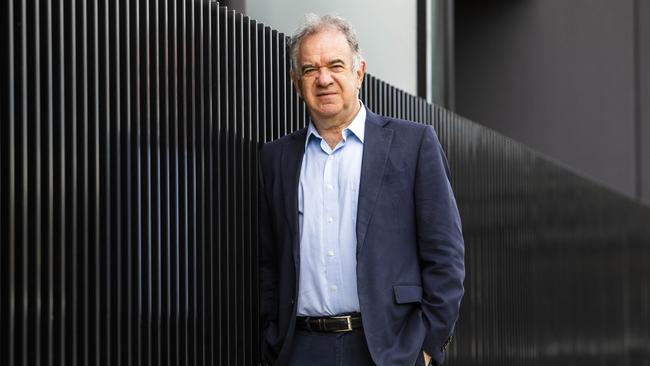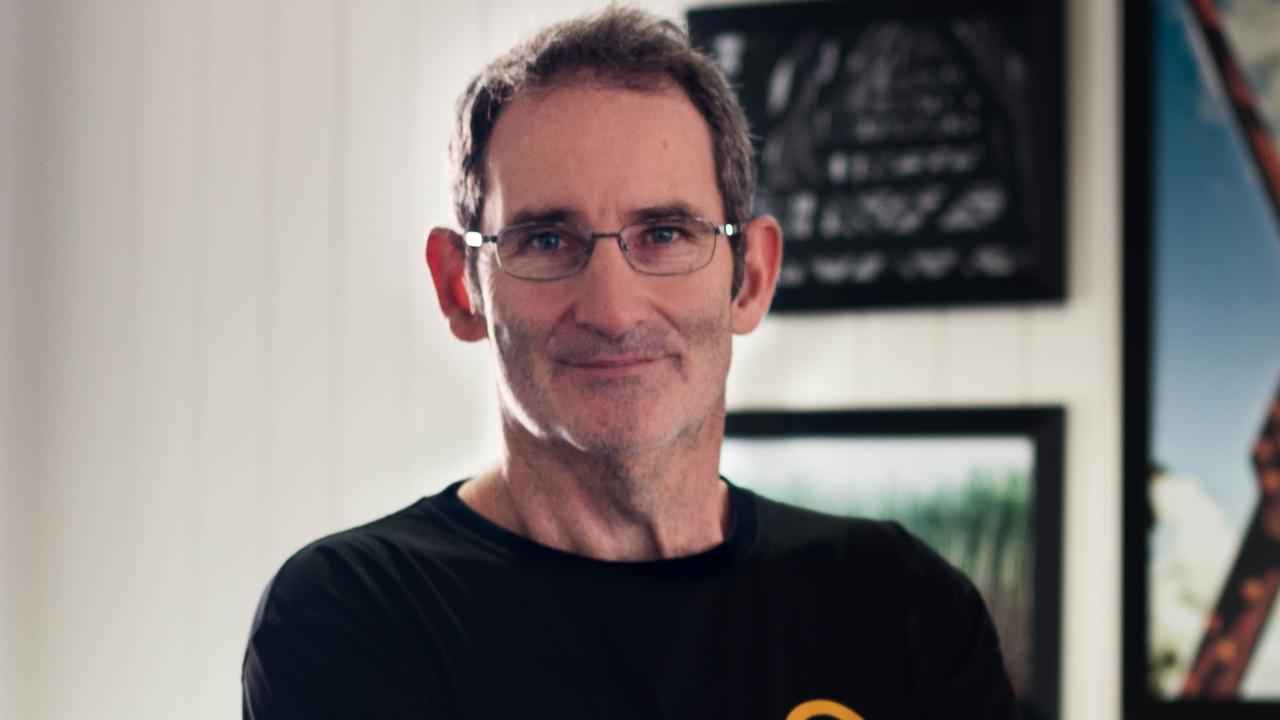Mesoblast buoyant after US FDA approves the administration of its drug Ryoncil
Mesoblast winning approval for its Ryoncil drug in the US opens the path for nothing less than the arrival of a new class of drugs, managing director Silviu Itescu says.

Business
Don't miss out on the headlines from Business. Followed categories will be added to My News.
Mesoblast’s achievement in winning approval for its Ryoncil drug in the US in December heralds the arrival of a new class of drugs with the potential to treat conditions ranging from cardiovascular ailments to pain, managing director Silviu Itescu says.
The company begins 2025 in a very different position to what it faced a year ago, not least because its share price is more than 10 times higher than it was back then.
When the company, which listed in December 2004, announced it had won approval for Ryoncil on December 19, its value rocketed up by more than a $1bn, valuing it at well over $3bn.
The shares are now changing hands at $3.06, valuing it at $3.52bn.
A year earlier the company was coming off the back of a $36m, 30c a share capital raising – not the first in recent years needed to keep the company alive.
In August 2022 the company raised $65m in a 75c per share private placement, having been knocked around by the FDA’s 2020 rejection of Ryoncil, requiring it to resubmit the drug.
In August 2023 the company copped another hit when the FDA demanded more data on the compound. Professor Itescu led something of a rescue mission to the US in September 2023, presenting to the FDA in person, and winning them over.
“Nothing beats face-to-face meetings,’’ Professor Itescu told The Australian last year.
“We met with them at FDA headquarters in September, we re-presented our data to a group of the leadership around a table, and presented to them both the clinical data and the manufacturing data, the science behind how the product works. And that was clearly a positive meeting.”
Mesoblast was asked for additional data, and went back to the FDA in January, expecting to be told that more needed to be done on the study front.
“And instead, what they said was ‘no, we’ve thought this through, and you’ve convinced us that the clinical data are very strong’,” Professor Itescu said.
“You’ve got enough to get approved for children – go ahead and file, and then consider how to take the product into adults.”
Speaking after the company won its crucial approval in December, which allowed it to start selling Ryoncil almost immediately, Professor Itescu said the significance of the achievement should not be underestimated.

“This is a breakthrough moment,’’ he said.
“It’s the first approval of any kind of mesenchymal stromal cell therapy in the US, for any indication, and it’s really the first of a new class of medicines. That’s really what the message is.
“Sometimes it takes a little bit longer, it costs a little bit more money, but think about monoclonal antibodies as a comparator.
“This is the beginning of a new industry.’’
Professor Itescu said investors in life sciences needed to be patient, but the rewards were there for those who had stayed the course. The company has not yet released revenue projections for Ryoncil, but Professor Itescu said the revenue would allow the company to continue to fund its other drug candidates – Revascor for cardiovascular disease and rexlemestrocel-L for inflammatory pain conditions – as well as funding the expansion of indications for Ryoncil.
The drug is currently approved to treat infants and children suffering from steroid-refractory acute graft versus host disease (SR-aGVHD), which affects some patients who receive allogeneic bone marrow transplants.
Of the 1500 or so who receive transplants, about half develop aGVHD, and almost half of those don’t respond to steroids.
Ryoncil offers the first treatment for the condition, which otherwise has a very poor prognosis.
Professor Itescu said he was very grateful to the community of affected patients and families which had worked with them during clinical trials, and was thankful that the new treatment would soon be saving lives.
There is potential now to expand the treatment into the adult cohort, and Professor Itescu said there were also potential applications in ailments involving inflammation of the colon or lungs.
“The other important thing about this approval, it’s what I call a ‘halo’ product,’’ he said.
“It’s got an approval, it shows that we can successfully get over the line with the FDA in terms of clinical development, in terms of manufacturing, in terms of regulatory and as we will show in terms of sales, marketing and distribution.
“But there’s a flow-on effect to the rest of our pipeline.
“Our second generation platform, rexlemestrocel, is being developed for cardiovascular disease, for inflammatory back pain – multibillion-dollar opportunities, much larger than GVHD, and those are either in phase three or have completed phase three.
“So those are the next ones that we will aim to get in front of the FDA and potentially over the line next year and beyond that.
“This approval should provide the confidence that shareholders are looking for in terms of the likelihood of multiple product approvals as we move forward.’’
Mesoblast was in December added to the Nasdaq Biotechnology Index. Professor Itescu said this would help raise its profile with US investors, who were generally more sophisticated when it came to life sciences investing.
Professor Itescu said the company was “reasonably well cashed up” at the moment, and also had access to a $50m convertible note from its largest shareholder.
“More importantly we want to broaden our investor base both in Australia and the US with investors who understand the long-term nature of returns as the business grows,” he said.
The company was looking to conduct roadshows over the months following the approval, he said.
“I think we want to have larger US funds that are in the business of supporting companies from a $2bn to a $10bn market cap, for example,’’ he said.
“Being included on the Nasdaq index is a sort of recognition of the brand I suppose, but being included on the index and the approval are benchmarks which many of the larger US funds look at in terms of where they allocate their investment.’’
More Coverage
Originally published as Mesoblast buoyant after US FDA approves the administration of its drug Ryoncil





